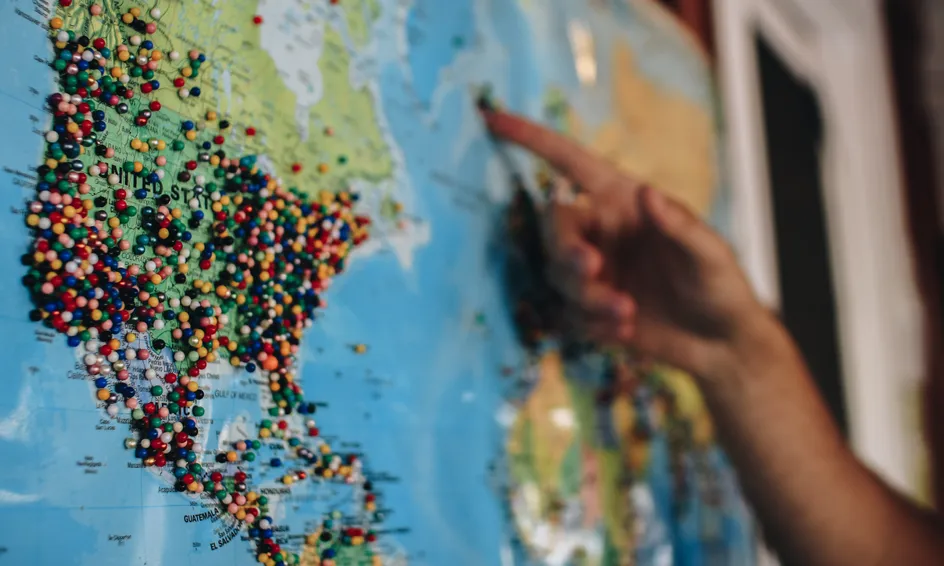It’s no secret that the world is a huge place filled with hundreds of different cultures and perspectives. Unfortunately, the many lessons that each culture learns over time often remains unknown to those across the globe.
World schooling is the practice of looking for ways to learn these lessons from several parts of the world. Through exploration and new experiences, the world becomes your child’s teacher.
Even though it may sound necessary, you do not need to be living in a different city each month of the year to participate in world schooling! World schooling is a way of learning, not a set of travel arrangements.
World schooling involves the commitment and excitement to:
- Provide your children with life experiences
- Foster children’s appreciation for different cultural norms
- Encourage the child’s natural desire to learn by following their interests
- Enhance children’s understanding of the real world and helpful life skills
How is World Schooling Different From Other Types of Homeschooling?
Since the COVID-19 pandemic started, there have been many more children doing schooling at home. When this began, many parents reached out to me for advice on homeschooling.
Parents who homeschooled before COVID were quick to point out that sitting at the kitchen table with a laptop and a book is not true homeschooling.
Homeschooling describes a variety of ways of teaching children at home. This ranges from emulating the school environment to completely following the child’s interests.
World schooling is a style of homeschooling that involves learning from the world, as already mentioned. But it was also born from the idea of unschooling, which seeks to put a sense of autonomy in children’s educational path.
World schooling, then, involves following the motivations of a child and guiding them as they learn about various aspects of the world.
People who are homeschooling their children have to do a lot of research in order to make the right decisions for their family. Whether the specific style of world schooling is a good fit or not all depends on each individual child and family and what works best for them.
Curious about World Schooling Pros and Cons?
World schooling gives children a completely new outlook on life than they would get if they spent their entire lives at a mainstream school.
Increased Acceptance of Diversity for Kids
Have you ever been in public with a child only for them to loudly ask, “why does that person look like that?” or “why are they doing that?” when they see someone doing something they don’t recognize?
World schooling involves recognizing the differences between people all over the world. Through exposure to a variety of cultures and abilities, children come to accept and respect people who are different from them.
Kids are sometimes thrown off or confused when they come across people that look or act a lot differently than they do. World schooling can instead help your child notice and learn from these differences.
Someday, your child might observe someone in the future using a wheelchair or using technology to communicate. Through world schooling, they will gain a deeper understanding of how some people make their lives easier using a variety of tools.
Discover How to Motivate Your Child to Learn
The direction that a world schooling program takes is much different than any mainstream school programs. This is in part due to the way that world schooling involves following what the child is most interested in.
How many times have you asked your child “What did you learn today?” only for them to either have nothing to share or have no excitement while relaying the new information.
It can be hard to pay attention or be motivated to learn when you don’t really care about the topic. Imagine I sat with you for seven hours a day teaching you all about how traffic jams happen and how to prevent them, you’d probably be bored out of your mind!
But when we have the chance to explore a topic that is super interesting to us, time almost disappears!
World schooling allows you to pick anything that your child is interested in and discover more about that thing. Whether they are passionate about animals, music, science, technology, art, reading, or practically anything, world schooling creates the opportunity to see the fun in learning.
Soon you’ll realize that they’re motivated to learn much more than you have any answers to!
Depending on Your Plan, The World Schooling Cost Can be High
Traveling is not cheap by any means. It often requires planning, saving, and lots of uncomfortable plane rides.
That means if your world schooling plan does involve a new country every month, there is quite a lot to prepare for. Some families decide to sell their belongings to travel, while others could never even imagine making that choice.
If you’re in the latter group, you’re in the right place.
Fortunately, as mentioned before, it is not required to travel to do world schooling. Create a plan that involves your hometown and home state, and supplement with online information about the rest of the globe online to reduce your world schooling costs.
Keep scrolling for $20 OFF your first world schooling class with me.
Planning Your Own World Schooling Program Can be Time Consuming
Teachers are paid to create lesson plans because it’s their job… You’re most likely not a teacher, but with world schooling you might get some practice.
Deciding what aspects of the world to study can be hard and take a lot of time. Even if you know your child’s interests well, you may find it difficult to select appropriate materials and get accurate facts to teach them.
Thankfully, there are some world schooling programs that take the guesswork out of the planning. On Outschool, an online learning platform, I hold several world schooling classes that explore different countries and important landmarks.
Instead of needing to find resources, information, and then figure out how to present it to your child, all you have to do is click “register.”
Check out some of the courses I’ve done in the past here.
Start a World Schooling Program Today Without the Hassle of Traveling!
Though traveling to different landmarks and countries can be an exciting addition to world schooling, it’s not a requirement!
You can start world schooling right in your own backyard. Learn from the world near you by digging up bugs, building snowmen, or growing a garden. Explore your neighborhood by geocaching, driving around, reading about the neighborhood’s history, and interviewing a neighbor.
Pay attention to what catches your child’s attention when you explore the world around you, and use books and online resources to expand on it.
The internet can be a wonderful tool for exploring and expanding your knowledge. With tons of information at their fingertips, the internet allows children to dive into any topic their curiosity grows on.
Though online learning could never replace lived experience, it is able to complement real life very well. When travel is not feasible, the internet allows children to virtually visit and experience different cultures.
For a great introduction to animals and holidays in different countries around the world, check out my World Tour course for kids ages 5 to 9.

For kids who are interested in Greek gods and goddesses, I have a course for them to learn about old Greek buildings and the related myths and legends.



Leave a Reply